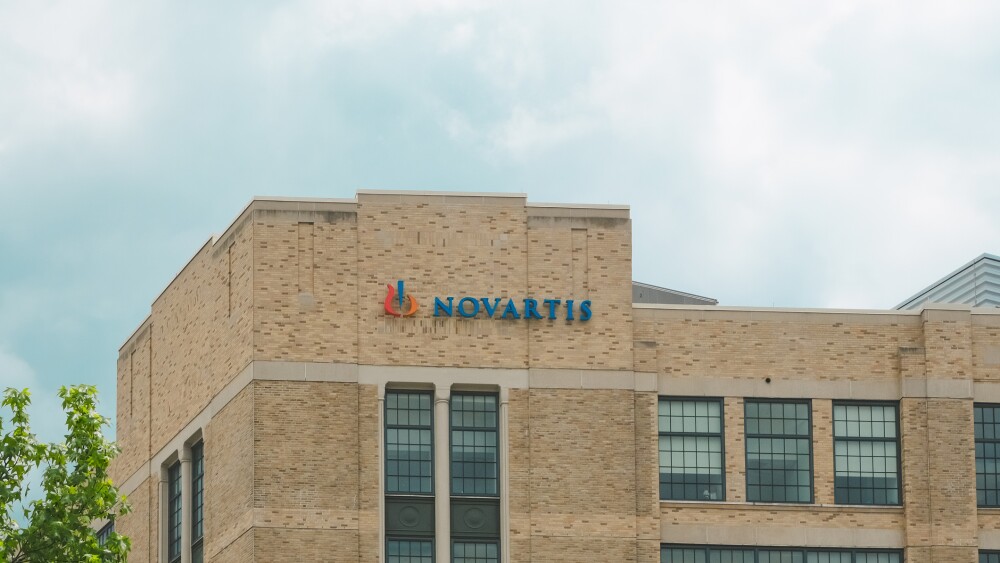aTyr Pharma, Inc. (Nasdaq: LIFE), a biotherapeutics company engaged in the discovery and development of innovative medicines based on novel biological pathways, today announced the appointment of Judith Varner, Ph.D., as a scientific advisor to the company. Dr. Varner currently serves as Professor in the Departments of Pathology and Medicine at the Moores Cancer Center at the University of California, San Diego (UCSD).
SAN DIEGO, March 10, 2021 (GLOBE NEWSWIRE) -- aTyr Pharma Inc. (Nasdaq: LIFE), a biotherapeutics company engaged in the discovery and development of innovative medicines based on novel biological pathways, today announced the appointment of Judith Varner, Ph.D., as a scientific advisor to the company. Dr. Varner currently serves as Professor in the Departments of Pathology and Medicine at the Moores Cancer Center at the University of California, San Diego (UCSD).
“We are pleased to announce Dr. Varner as a scientific advisor to our company and welcome the opportunity to work with an expert that is local to San Diego and has a world-renowned reputation in the area of cancer biology,” said Sanjay S. Shukla, M.D., M.S., President and Chief Executive Officer of aTyr. “We look forward to Dr. Varner’s contributions as we continue to advance our mechanistic understanding of Neuropilin-2 (NRP2) as a potential target in solid tumors, including its associated signaling pathways and interaction with VEGF, one of its primary ligands. Her expertise in the areas of myeloid cell biology and tumor macrophage signal transduction lends well to our emerging NRP2 antibody program, which includes ATYR2810 and additional discovery stage candidates.”
“Our recent poster presented at the 2021 Virtual Keystone Symposia: Tumor Metabolism and the Microenvironment demonstrates that NRP2 is highly expressed on key immune cells in the tumor microenvironment, providing further validation of NRP2 as a regulator of solid tumor progression. Research continues to support NPR2 as a compelling target for potential therapeutic approaches to treat certain aggressive cancers where high expression of NRP2 is implicated, and aTyr is at the forefront of the effort to better understand NRP2 and its signaling pathways,” said Dr. Shukla.
Dr. Varner noted, “I look forward to serving on the scientific advisory board of aTyr, a clear leader in the development of anti-cancer therapeutics with their NRP2-based antibody therapeutics program.”
Dr. Varner joined UCSD in the Department of Medicine in 1997 and the Department of Pathology in 2012. As a member of the Moores Cancer Center, her research is focused on the role of inflammation in cancer. Her work, which recently appeared in Cancer Cell, Nature and Cancer Discovery, has identified novel mechanisms by which macrophages promote tumor growth and has developed new approaches to treat cancer patients by targeting tumor macrophage signal transduction. Dr. Varner has a particular interest in mentoring and promoting equity and diversity; she has served as the Chair of the Academic Senate Committee of Diversity and Equity, as UC San Diego representative to the Universities of California Academic Senate Committee on Diversity (UCAAD), and as a member of the Academic Senate/Health Sciences Research Grant Committee, the Senate-Administration Faculty Salary Equity Review Committee and the Chancellor’s Advisory Committee on the Status of Women. She has also served as the Chair of the Moores Cancer Center Space Advisory Committee, and as a member of the Medical Scientist Training Program Recruitment and Admissions Committee, the Department of Medicine Appointments and Promotions Committee, the Biomedical Sciences Graduate Admission Committee and the School of Medicine Recruitment and Admission Committee. She has served as Chair of the NIH Tumor Microenvironment review panel and of several NIH Special Emphasis reviews panel. Dr. Varner is a Fulbright fellow and recipient of the AACR- Landon Foundation Innovator Award for International Collaboration and the Lustgarten Foundation Innovator Award for Pancreatic Cancer Research.
About NRP2
Neuropilin-2 (NRP2) is a cell surface receptor that plays a key role in lymphatic development and in regulating inflammatory responses. In many forms of cancer, high NRP2 expression is associated with worse outcomes. NRP2 can interact with multiple ligands and co-receptors through distinct domains to influence their functional roles, making it a potential drug target with multiple distinct therapeutic applications. NRP2 interacts with type 3 semaphorins and plexins to impact inflammation and with forms of vascular endothelial growth factor (VEGF) and their receptors, to impact lymphangiogenesis. In addition, NRP2 modulates interactions between CCL21 and CCR7 potentially impacting homing of dendritic cells to lymphoid organs. aTyr is currently investigating NRP2 receptor biology, both internally and in collaboration with key academic thought leaders, as a novel target for new product candidates for a variety of diseases, including cancer and inflammation.
About aTyr
aTyr is a biotherapeutics company engaged in the discovery and development of innovative medicines based on novel biological pathways. aTyr’s research and development efforts are concentrated on a newly discovered area of biology, the extracellular functionality and signaling pathways of tRNA synthetases. aTyr has built a global intellectual property estate directed to a potential pipeline of protein compositions derived from 20 tRNA synthetase genes and their extracellular targets. aTyr’s primary focus is ATYR1923, a clinical-stage product candidate which binds to the Neuropilin-2 receptor and is designed to down-regulate immune engagement in inflammatory lung diseases. For more information, please visit http://www.atyrpharma.com.
Forward-Looking Statements
This press release contains forward-looking statements within the meaning of the Private Securities Litigation Reform Act of 1995. Forward-looking statements are usually identified by the use of words such as “anticipates,” “believes,” “estimates,” “expects,” “intends,” “may,” “plans,” “projects,” “seeks,” “should,” “will,” and variations of such words or similar expressions. We intend these forward-looking statements to be covered by such safe harbor provisions for forward-looking statements and are making this statement for purposes of complying with those safe harbor provisions. These forward-looking statements include statements regarding the potential therapeutic benefits and applications of NRP2 antibodies, including ATYR2810; timelines and plans with respect to certain development activities; and certain development goals. These forward-looking statements also reflect our current views about our plans, intentions, expectations, strategies and prospects, which are based on the information currently available to us and on assumptions we have made. Although we believe that our plans, intentions, expectations, strategies and prospects, as reflected in or suggested by these forward-looking statements, are reasonable, we can give no assurance that the plans, intentions, expectations or strategies will be attained or achieved. All forward-looking statements are based on estimates and assumptions by our management that, although we believe to be reasonable, are inherently uncertain. Furthermore, actual results may differ materially from those described in these forward-looking statements and will be affected by a variety of risks and factors that are beyond our control including, without limitation, uncertainty regarding the COVID-19 pandemic, risks associated with the discovery, development and regulation of our product candidates, the risk that we or our partners may cease or delay preclinical or clinical development activities for any of our existing or future product candidates for a variety of reasons (including difficulties or delays in patient enrollment in planned clinical trials), the possibility that existing collaborations could be terminated early, and the risk that we may not be able to raise the additional funding required for our business and product development plans, as well as those risks set forth in our most recent Annual Report on Form 10-K, Quarterly Reports on Form 10-Q and in our other SEC filings. Except as required by law, we assume no obligation to update publicly any forward-looking statements, whether as a result of new information, future events or otherwise.
| Contact: | |
| Ashlee Dunston | |
| Director, Investor Relations and Corporate Communications | |
| adunston@atyrpharma.com | |





